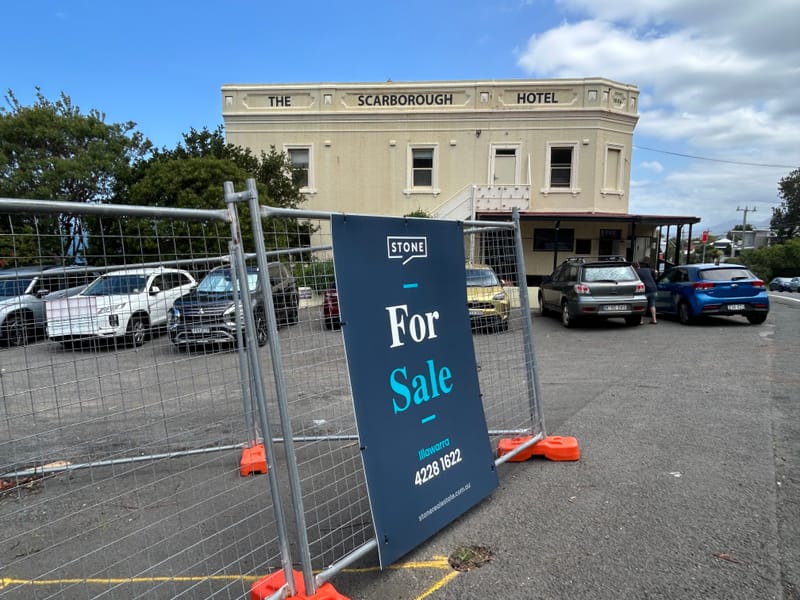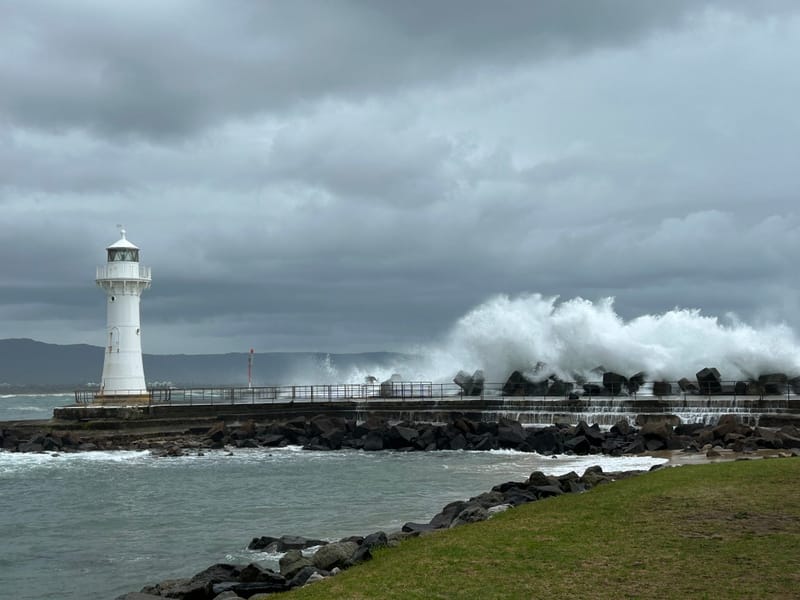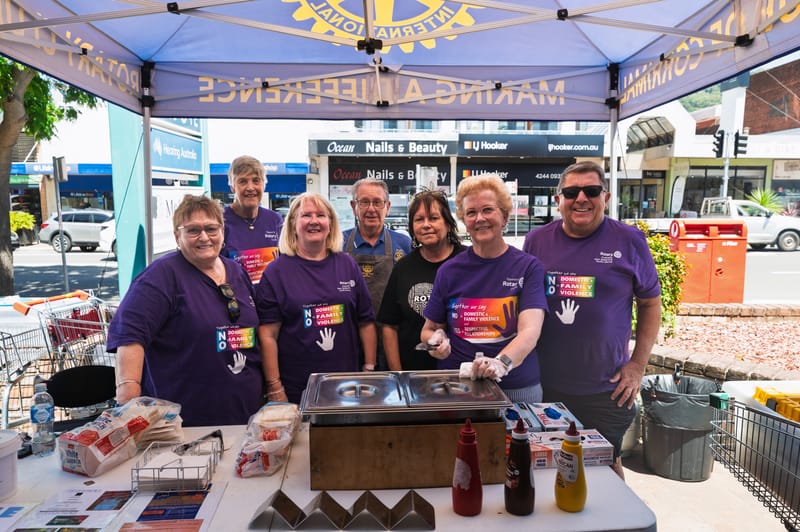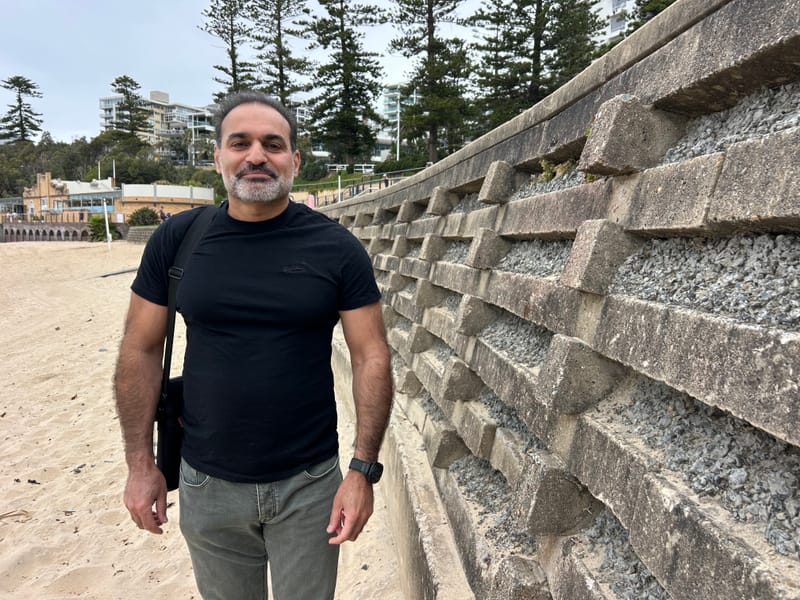Health concerns drive calls for new homes to be all-electric
On the eve of World Asthma Day, about 50 people rallied outside Wollongong City Council’s Burelli Street offices. Their goal: to urge council to make new developments all-electric, with research showing gas stove use is estimated to cause 12% of childhood asthma in Australia.
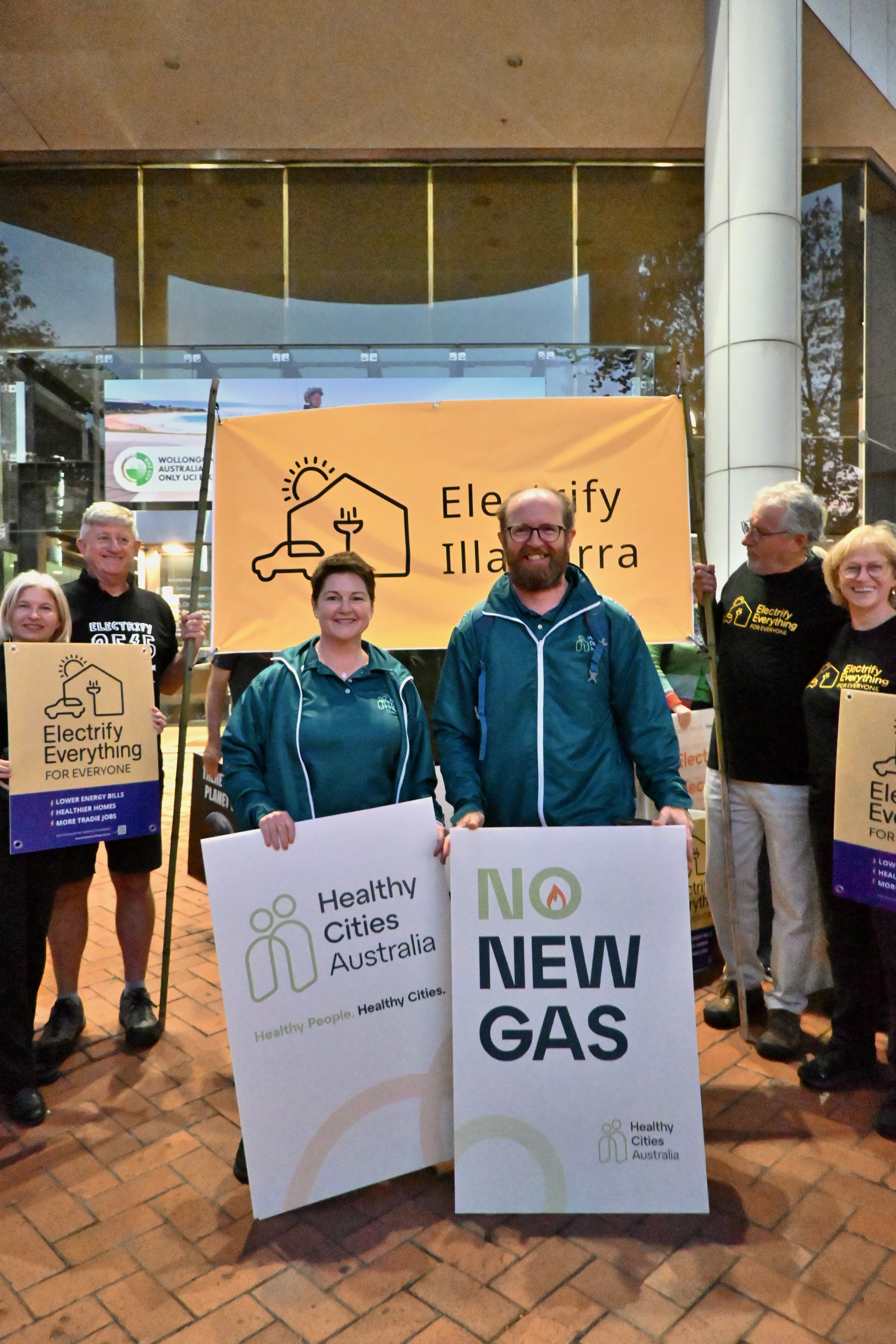
On the eve of World Asthma Day, about 50 people rallied outside Wollongong City Council’s Burelli Street offices. Their goal: to urge council to make new developments all-electric, with research showing gas stove use is estimated to cause 12% of childhood asthma in Australia.
Councillors Jess Whittaker, Kit Docker, Deidre Stuart and Andrew Anthony attended the May 5 gathering, which featured speeches, signs calling for "No New Gas in the Gong" and to "Electrify Illawarra", and a rousing pro-electrification reboot of Gloria Gaynor's classic I Will Survive by Margi Curtis, of the Illawarra Knitting Nannas Against Greed (IKNAG).
Local GP Professor Rowena Ivers, from Doctors for the Environment, told the crowd about a Tasmanian study that followed 3000 people over 10 years. “If you were exposed to gas in your house, from a heater or from the stove, you have got … 2.6 times the risk of having asthma symptoms.”
The fossil fuel has also been linked to heart disease and bronchiolitis, Prof Ivers said.
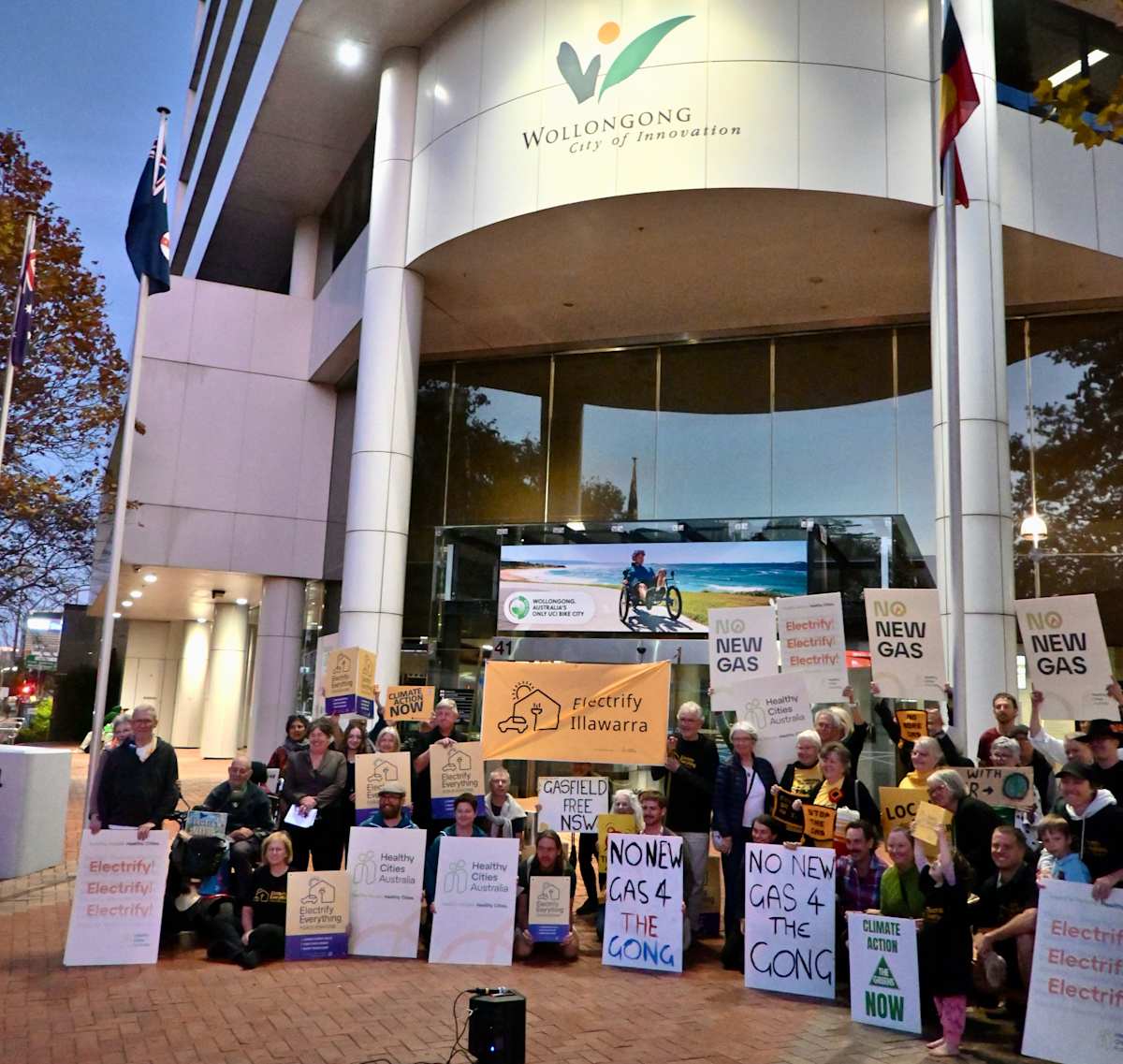
Health concerns drive electrification
People are worried and they’re changing their homes as a result, new data shared with The Illawarra Flame this week shows.
“Two-thirds of 600 applicants for the Electrify 2515 Community Pilot have listed 'health' as a reason they want to move away from gas in the household, so it's clearly very important for people,” pilot operations manager John Buchelin said.
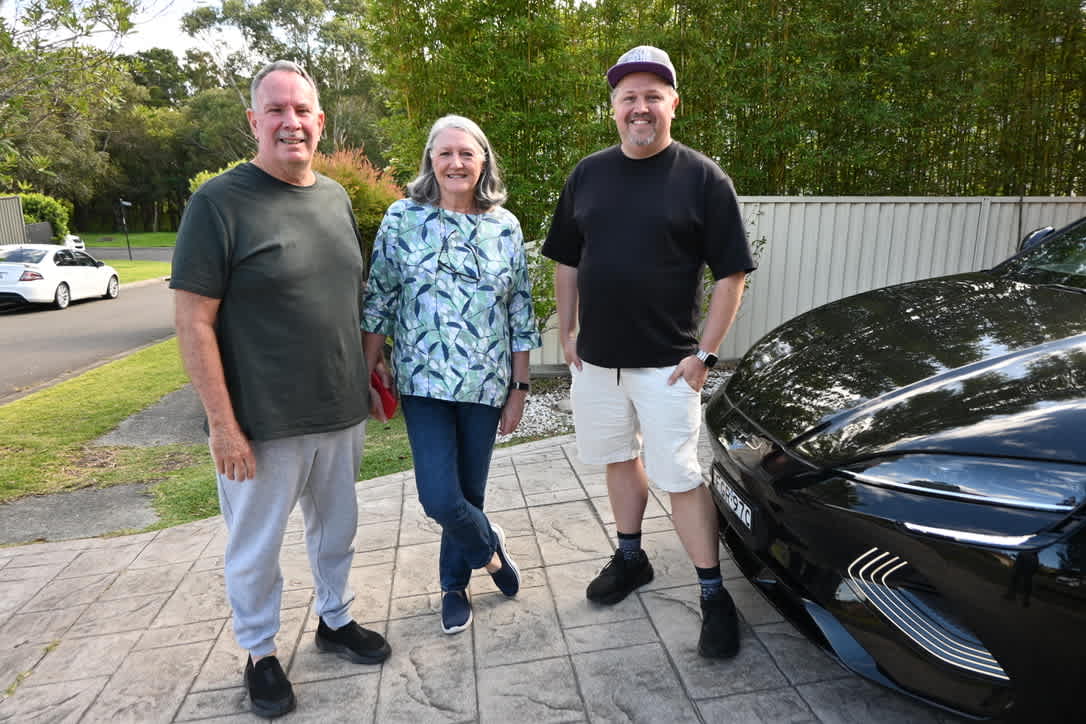
Electrification for health reasons was also in focus at Sunday’s Sustainable Homes Day, organised by non-profit group Renew.
In Flinders, Mary and Graham – who used to work in the gas industry – opened their home to visitors, sharing how they quit heating and cooking with gas once they learned of its health hazards.
The couple now prefer reverse-cycle air con (no smell, no water vapour condensing on windows, cheap and quiet to run) and love their induction stove. Visitors swapped stories about how induction cooktops are quicker, easier to clean, less risky as there’s no open flame, and more efficient with no residual heat. One enthusiastic convert said, “You can boil three litres of water in two minutes.”
“They’re quite a bit faster than gas, contrary to some belief,” said Renew Illawarra’s Greg Knight, who led a sustainable home tour in Tarrawanna.
Mr Knight’s own home has a gas stove but he’s found a cheap fix for that. “I just bought a little Bunnings induction one, $20 non-stick pot, $20 frying pan – laughing.”
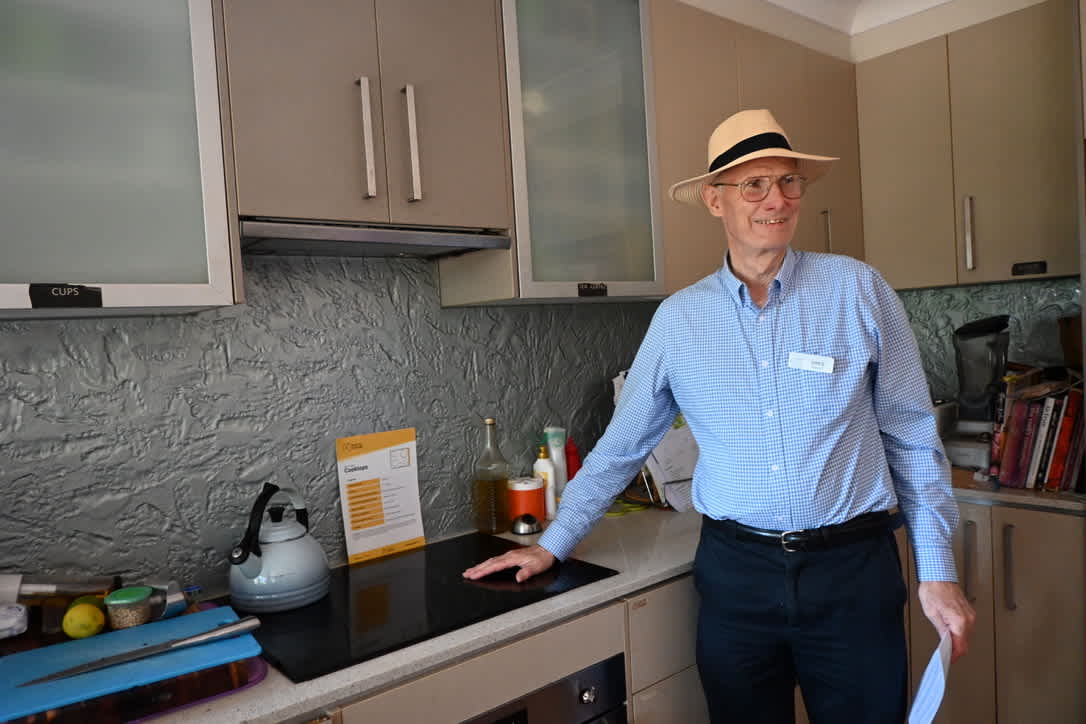
Barriers to quitting gas
Still, change is never simple, especially if big business is involved.
“Gas is definitely the new smoking,” said Monday's rally organiser, Alexander Brown, a health promotion officer at Healthy Cities Australia.
Scientists have known for decades that carbon monoxide and the nitrogen dioxide created when burning gas indoors is harmful.
“That evidence around asthma, but also other respiratory symptoms … it's actually from the early 1990s,” Mr Brown said.
A 2013 meta-analysis in the International Journal of Epidemiology and a 2018 study in the Medical Journal of Australia have provided more evidence.
“The research shows about 12.3% of the childhood asthma burden can be traced to exposure to indoor gas stoves.”
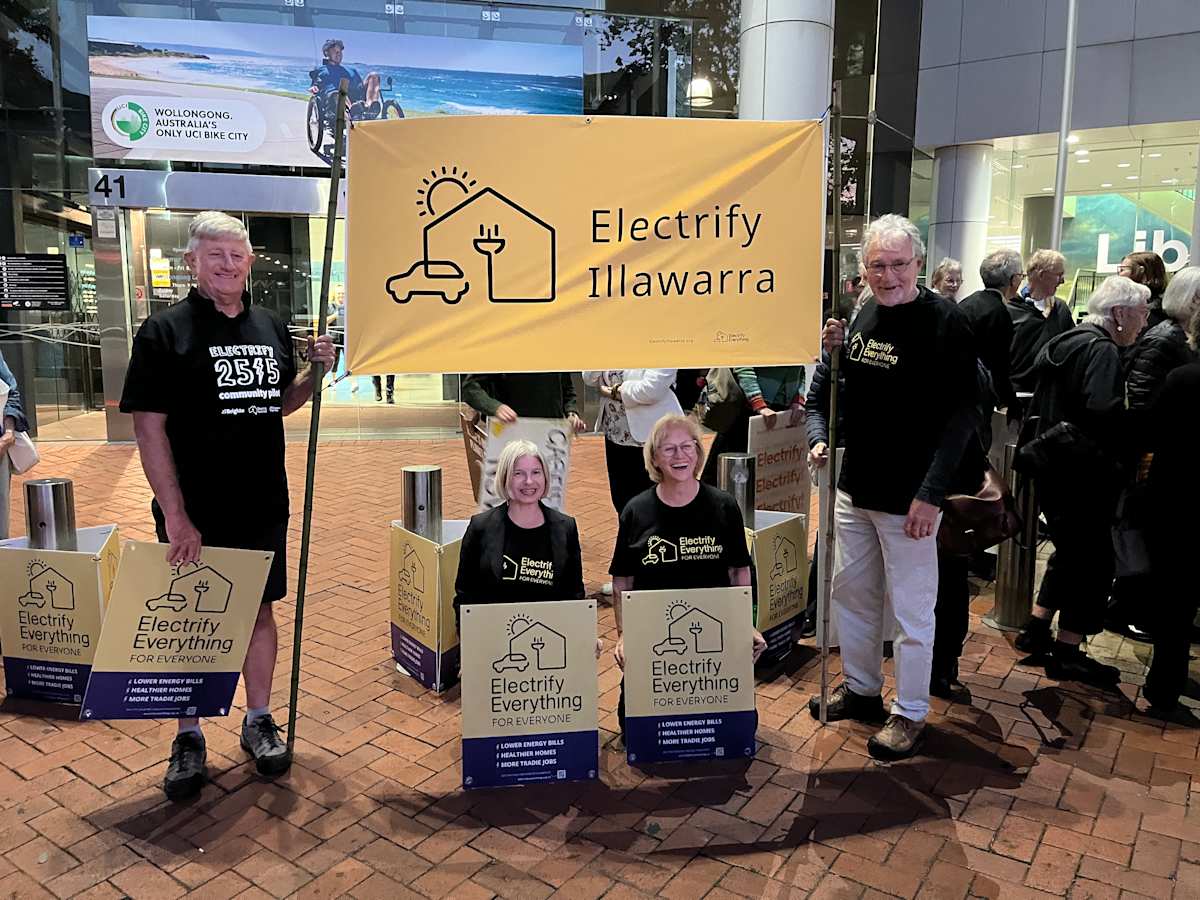
Aim to keep kids out of hospital
Asthma is the third most common long-term health condition in the Illawarra, affecting more than 27,000 people, according to the 2021 Census.
Mr Brown – whose daughter has asthma – has a fully electric home and joined Healthy Cities last year to work on its Breathe Better program, run in partnership with Asthma Australia.
“We are looking at the causes of asthma and better asthma management in the Wollongong area and trying to make sure kids don't end up in hospital basically,” he said.
“One of the first things I learned about asthma when I took on this job is it affects Aboriginal and Torres Strait Islander people 1.6 times more than the rest of the population. So it's a very important issue for health equity in closing the gap as well.”
Mr Brown said changes to Wollongong’s Development Control Plan (DCP) to mandate all-electric new builds weren’t expected overnight, as Monday's council meeting dealt only with an introductory chapter.
“It's an ongoing process,” he said. “We'll just keep on asking for it until we get it.
“Once you build a development, it's much harder to go in there and retrofit. If anyone's tried to cancel their gas connection, it's quite expensive.”
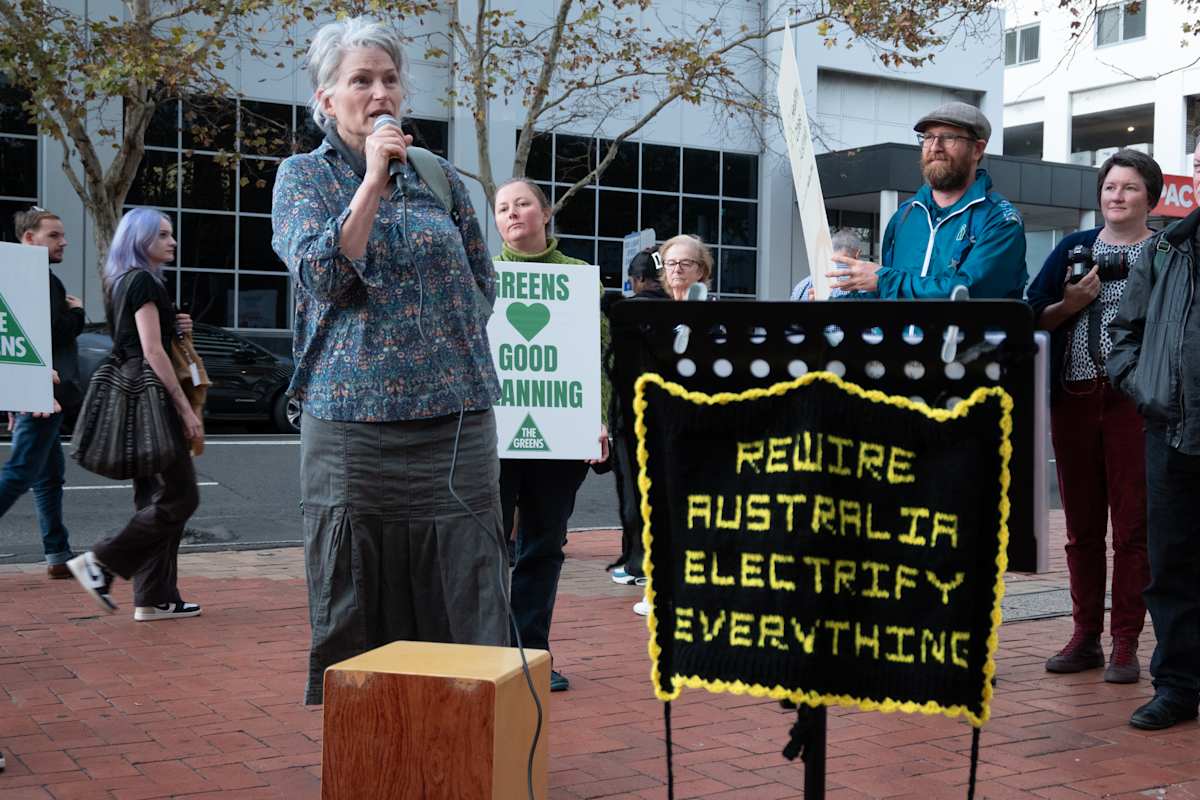
Cost of quitting gas
Home owners pay to quit gas, with Jemena charging a disconnection fee of about $160 and an abolishment fee of over $1600 to remove a meter. Ward 3 Greens Councillor Deidre Stuart – who supports an all-electric mandate on new homes – knows this first-hand.
“It is actually really expensive. And that doesn't include the costs of then getting a new cooktop and the installation costs as well.”
Cr Stuart spoke at Monday’s rally then at the council meeting, aiming to raise awareness of the issue, the process and timeline involved.
“It makes no sense to keep rolling out gas into new houses and new commercial buildings,” she said. “There's a mountain of evidence that shows that using gas in homes, whether for cooking or heating, is really unhealthy.”
Cr Stuart was initially motivated to act to protect her daughter, who has a serious health condition. “I avoided using the gas cooktop,” she said. “It took us five years to be able to afford to get off gas.
“Personally, I'm glad to be off gas, but I'm also really concerned when I talk with people about gas in their homes. People legitimately think the government is there to look after them and has building codes and requirements that keep people safe, but, unfortunately, that's not really the case.
“There’s powerful actors in the fossil fuel industry. Their business model relies on people continuing to be addicted to fossil fuels, and they're threatened by anyone who wants to see change and get us shifting to renewable energy.
“But the renewable energy transition is on its way.”
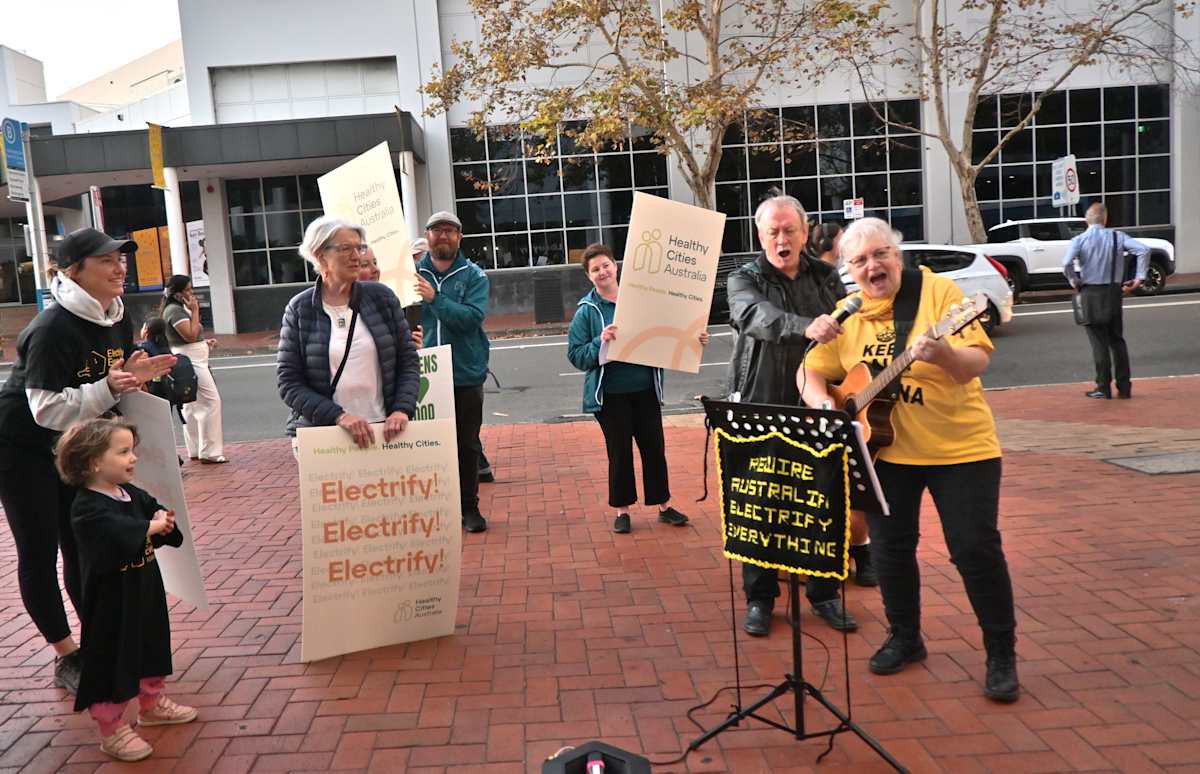
'Moving with the tide of history'
James Conlan, from 350 Australia, spoke at Monday’s rally about the climate activist group's broader campaign, Electrify Your Council.
“At the moment the Minns Government is still allowing new gas connections in new buildings, which is ridiculous, appalling,” he said. “So far we've got 14 councils across the state who have passed motions to ban gas in new buildings.”
In December 2022, Parramatta Council became the first council in NSW to pass all-electric planning rules. Since then, Waverley, Hornsby, Lane Cove and the City of Newcastle councils have brought in various electrification changes.
Healthy Cities rally organiser Alexander Brown said, “We are moving with the tide of history here.”
He thinks NSW is “a bit of a laggard”: “Victoria and the ACT have already made this move at the state level. That's ultimately what we need to see.
“As the gas network sees more and more people disconnecting, there's going to be a higher cost burden per person who is connected. So by making sure new developments aren't connected, they are actually protecting future property owners and residents from those higher gas bills.”
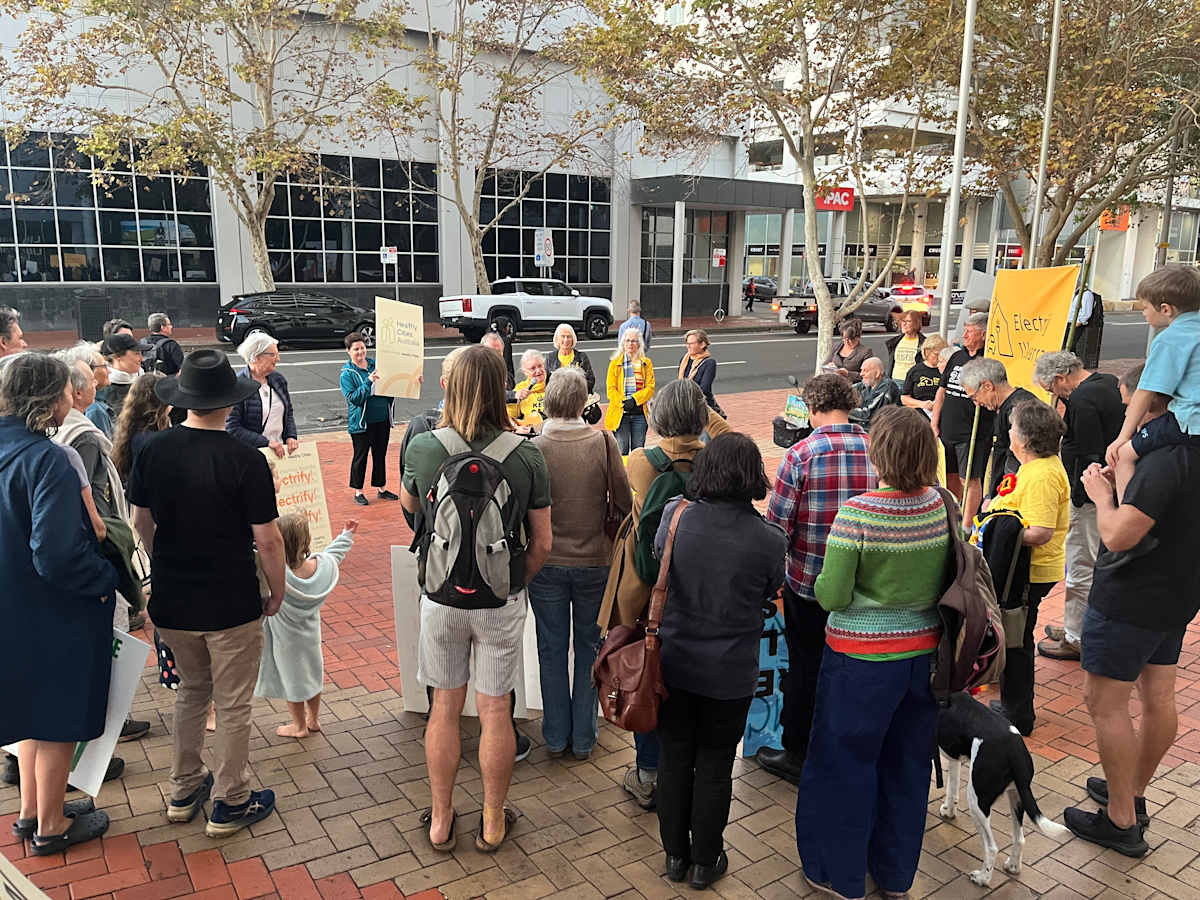
'We need to hear from the state'
Wollongong Lord Mayor Tania Brown said the documents before council on Monday in the DCP set out principles but did not give a mechanism to mandate.
"We had 54 submissions, there are still a lot of silent people out there who haven't voiced an opinion on it," she said.
The Lord Mayor would like NSW Government input, including via the Building Sustainability Index (BASIX), an assessment tool that's part of the development application process and used to reduce the environmental impact of new residential buildings.
"I'm cautious about mandates," she said. "I think we need to hear from the state on this.
"That's part of what we talked about [at the council meeting] was sending back the feedback that we'd received to the state – to the relevant ministers. They need to step in with BASIX and other measures to send a clear indication to developers. I think it's easy to do something in a brand new development whereas calls for retrofits – who's going to fund that? I have concerns there.
"It's something we need to step slowly into, but broadly we understand the health implications of gas for respiratory conditions. So we're all learning on this journey."
A spokesperson for Wollongong City Council said the general manager has written to NSW Government ministers to clarify their position on banning the use of gas where alternatives such as electricity are available. Read the full statement here.
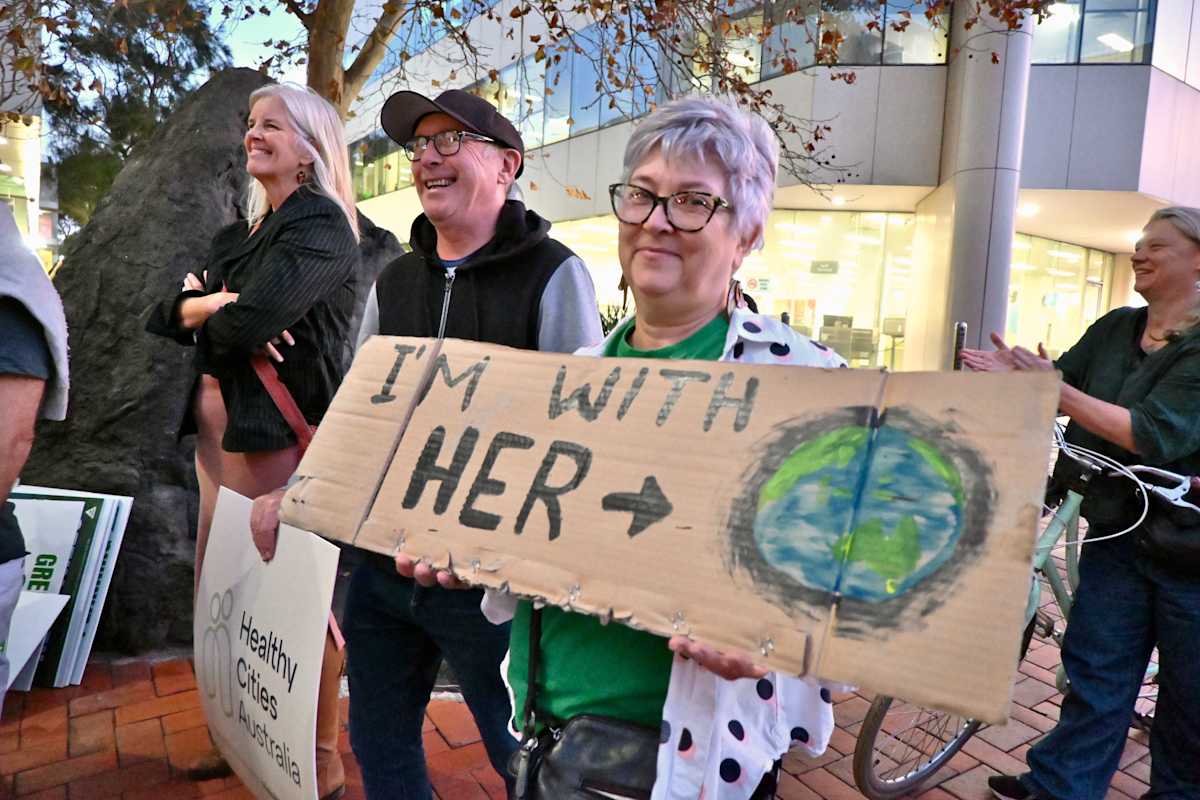
Better for people, hip pockets and planet
Unlike with smoking, with gas there is a healthy alternative: electric appliances.
But the idea of council mandating all-electric new builds had mixed responses at Monday's meeting, with views spread across the political spectrum, from Greens councillors, who backed the idea, to Liberal councillor Ryan Morris, who suggested a need for nuclear baseload power.
One argument is that people should have choice.
Mr Brown, of Healthy Cities Australia, doesn’t buy it. “People can always connect bottle gas to their homes regardless of whether they have a hard line gas connection. But when we are thinking about urban planning, it's not really about what one individual wants to do. It's about what works for the whole society. We don't argue around individual choice of wearing seat belts or driving on the left hand side of the road.”
Cr Stuart agrees. “The default in our area seems to be gas. It's a very expensive operation to get off gas and to go all electric. And then the consequences of costs and health … I think the choice goes the other way. The choice is taken away."
Further council discussions are expected in coming months and Cr Stuart said she would “keep pushing on behalf of the community”.
“I suggest people write directly to the Lord Mayor and to all of the councillors and to the general manager and say this is something that they want action on. I think this pressure is felt and is heard, and it does make a difference.”
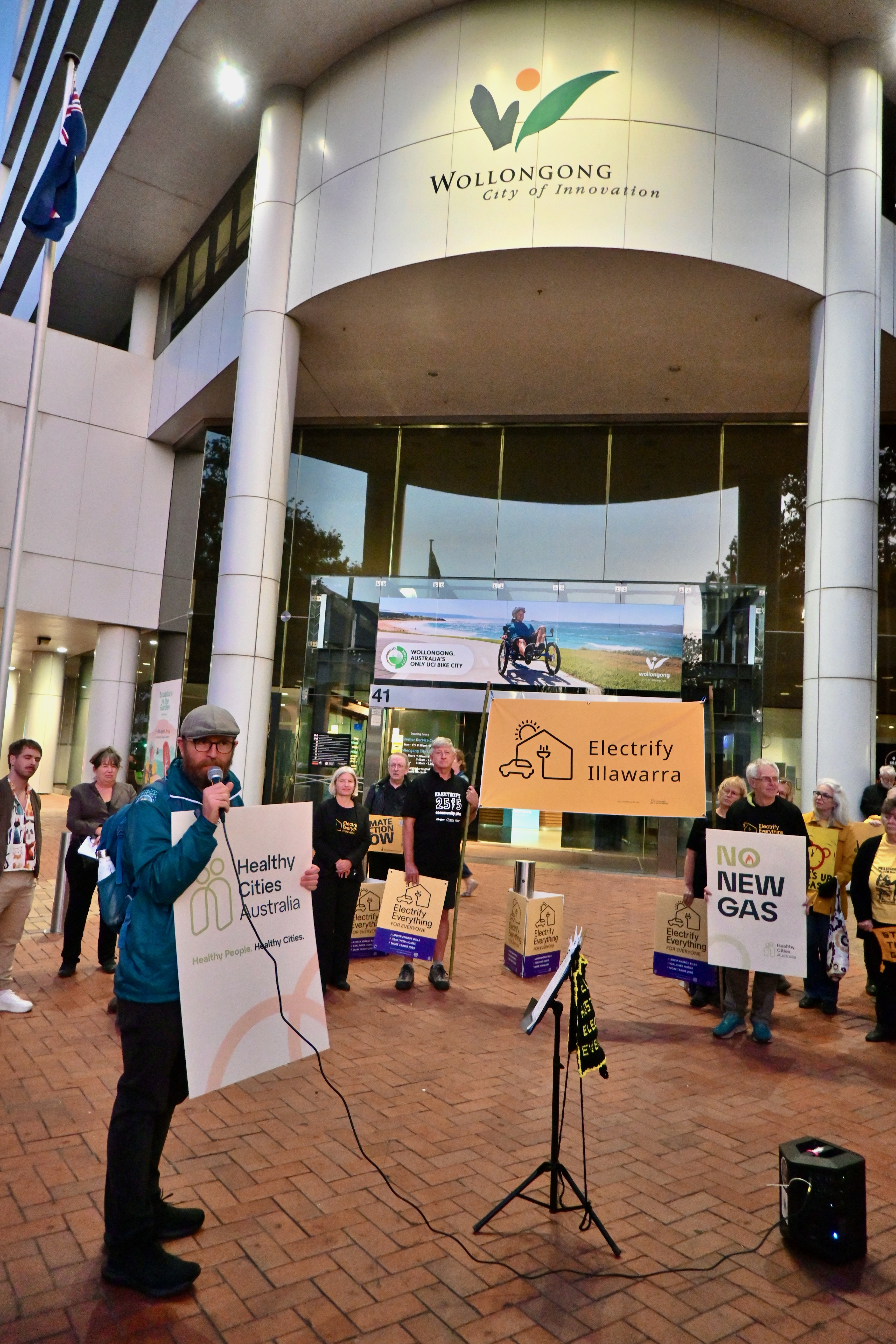
This article is part of The Illawarra Flame's 'Prevention is the best medicine' solutions journalism series, supported by funding from the Walkley Foundation.


